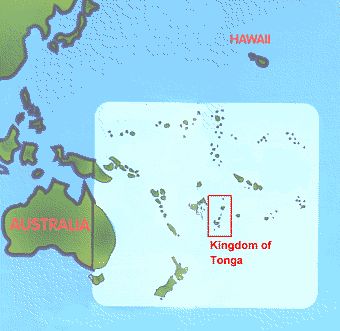Case Status: Settled on terms favorable to CIR's client
DynaLantic Corp. v. Department of Defense

Getting Race Out of Federal Contracting
CIR represented a small Long Island company whose ability to compete (and even stay in business) was hobbled by the federal government’s extensive use of race preferences in awarding government contracts. The company, DynaLantic Corporation, was owned and operated by Paul Patin and Jeff Weinstock and manufactured the simulators and training devices used to help train our nation’s military personnel.
In a summary judgment motion filed in October 2003, DynaLantic asked Federal District Court Judge Emmet Sullivan to 1) declare that the program of contracting preferences for minority-owned businesses of the Department of Defense (DOD), the Navy, and the Small Business Administration (SBA) violated the Constitution’s equal protection guarantee, and 2) to enjoin those preferences. The government filed a summary judgment motion as well.
Judge Sullivan heard oral argument on the cross motions for summary judgment in August, 2004. In December 2004, the court invited several third party groups, including the NAACP Legal Defense Fund, Inc., Mountain States Legal Foundation and Pacific Legal Foundation to file amicus briefs on the various issues raised in the case. CIR responded to these briefs in April, 2005.
A Facade of Social and Economic Disadvantage
The complex, mechanical preferences used by DOD include quota-like goals, set-asides, noncompetitive contract awards, a ten percent price adjustment factor, and performance evaluation incentives for contracting officers. These preferences, codified in Section 8(a) of the Small Business Act as well as in related statutes and regulations, are said to be for small, “socially disadvantaged” business owners of all races. However, the government defines social disadvantage so as to presumptively include virtually all racial minorities, ranging from African-Americans and Hispanics to Samoans, Tongans, Pakistanis, and Sri Lankans.

At the same time, the statutory and regulatory definitions presumptively exclude small businesses owners who are white, such as Jeff and Paul. As a result, “over 99% of the firms [in the 8(a) program] qualified as a result of race-based presumptions,” according to a 1997 opinion by the U.S. Court of Appeals for the D.C. Circuit in an earlier round of this case. Data obtained by CIR show that nothing has changed since 1997: though styled as a benefit for “socially disadvantaged” businesses, the program is nothing more than a race preference.
In theory, the preference program is limited to “economically disadvantaged” individuals — those with net worth of no more than $6 million (excluding the value of retirement accounts). DynaLantic’s summary judgment brief cited testimony by Karen Lee, Deputy Inspector General of the SBA, that “wealthy individuals continued to be eligible for the 8(a) program…in our sample, 35 of the 50 were millionaires but remained classified as disadvantaged.”
A Strong Case
While the Constitution permits the government to use narrowly tailored race-base remedies where it has a compelling interest in eliminating the effects of its own past discrimination, neither the compelling interest nor narrow tailoring requirements are met in the 8(a) program. To the contrary, as DynaLantic’s summary judgment brief explains, “the programs in question [require government agencies] to set aside a percentage of their procurements based primarily on race, without considering whether any discrimination ever existed, [or] whether there are continuing effects of that discrimination.”
Despite nearly five years of discovery, the government failed to offer evidence of any kind to suggest that there has been discrimination against minorities in the simulator and training industry, much less that it was government’s own discrimination. Moreover, while DOD’s preference program is supposedly targeted at industries where minority contractors are underrepresented, the government never bothered to determine whether there was underrepresentation in DynaLantic’s industry.
DOD offered as a justification for its racial preferences general allegations of discrimination in the business world, paired with the implication that, since the federal government does business throughout the nation, it must be “passively participating” in other people’s discrimination. As DynaLantic’s summary judgment brief explained, “Defendants hope to use the ‘exception’ of passive participation to swallow the rule against preferences based on societal discrimination.”
The ramifications of this case reach beyond contracting. At stake was whether the government can justify race preferences solely on the basis of it’s allegedly passive participation in the discrimination of others, as measured by general social patterns of inequality.
Moreover, DOD’s preference program fails to comply with the constitutional requirement that it be “narrowly tailored” to past discrimination. Among other things, the the government must seriously consider race-neutral alternatives to preferences, and it must limit racial preferences in time. See CIR’s “Gratz v. Bollinger; Grutter v. Bollinger” (the University of Michigan cases). Neither requirement is met by the 8(a) program. In fact, none of the many racial and ethnic groups granted disadvantaged status under the 8(a) program has ever been removed from the list of preference recipients, despite many years of social and economic progress.
Updates on this case

Jan 2014
Feds End 19-year Battle with DynaLantic
Federal District Judge Emmett Sullivan signed and approved a settlement between CIR client DynaLantic Corp. and the defendants, the Department…

Aug 2012
Court issues ruling after seven years
After a seven year wait, U.S. District Court Judge Emmet Sullivan finally ruled in favor of CIR’…

Jun 2001
New evidence undermines affirmative action in government contracting
CIR's Adarand brief disputes claims of past discrimination Washington, D.C. - The law firm at the forefront of the…
